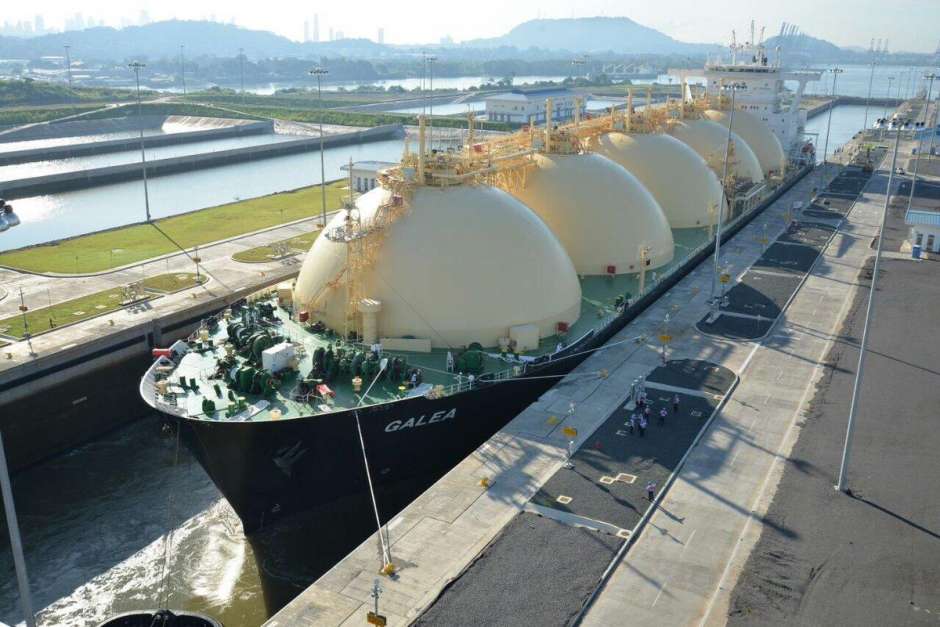New rules allowing a greater number of liquefied natural gas tankers to pass through the Panama Canal per day are expected to boost the development of the multibillion dollar industry along the U.S. Gulf Coast.
The rules went into effect in October. Canal officials now allow two LNG tankers traveling in opposite directions to be in the waterway’s central lake at the same time. The canal opened to LNG tankers in June 2016, but administrators had limited that traffic to one tanker per day during daylight hours.
Jorge Barakat, minister of maritime affairs for the Panama Maritime Authority, said that as many as four to five LNG tankers have passed through the canal in a single day. The Panama Maritime Authority registers ships traveling through the canal.
“LNG is very important for the Panama Canal,” said Barakat, while in Houston for Panama Week Texas, an annual event to promote business ties between the state and Central American nation. “It’s increasing the amount of vessels that transit through the canal.”
The new rules come ahead of the LNG industry’s anticipated expansion along the U.S. Gulf Coast. The Houston company Cheniere Energy has emerged at the canal’s top customer among LNG exporters, moving cargoes from its Sabine Pass processing plant in Louisiana through the canal to customers in Asia. Cheniere moved 62 shipments going through the Panama Canal last year.
Cheniere declined to comment.
Cheniere’s Corpus Christi LNG export terminal and one in Brazoria County owned by Freeport LNG of Houston are expected to begin commercial shipments in 2019. Nearly a dozen other companies, including another Houston company, Tellurian, are seeking permits to build even more export terminals.
The LNG plants are getting built to take advantage of flood of natural gas from U.S. shale formations and growing demand from power plants in Asia. Barakat said the majority of LNG tankers passing through the canal are headed to destinations in China, Japan, South Korea and the Pacific Coast of Mexico.
“Panama always strives to support that activity,” Barakat said. “The most important role we have is to support more transit through the Panama Canal.”
